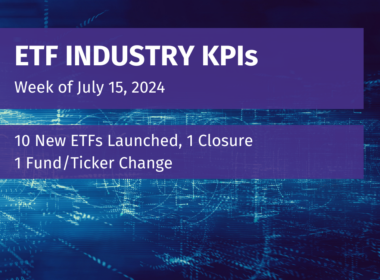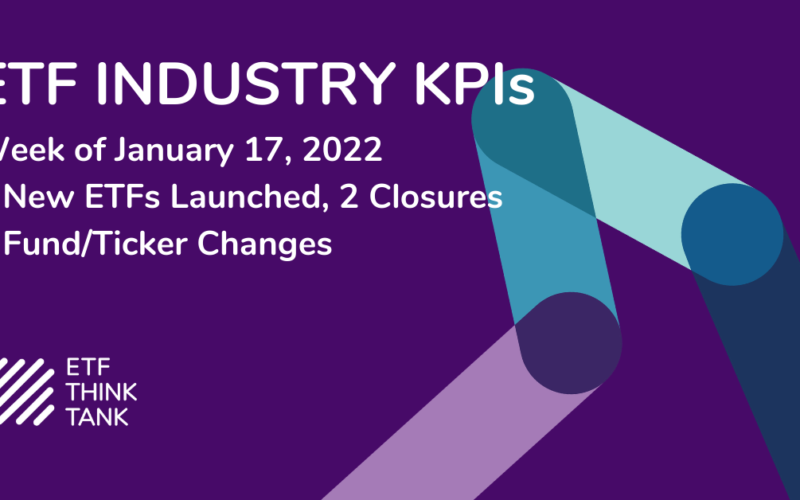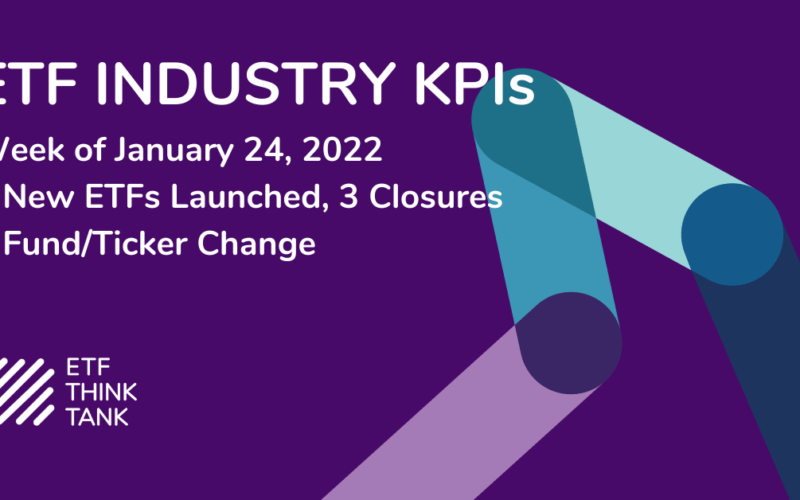As the omicron variant of COVID rages on, it’s still unclear when exactly life will return to normal. Leisure and travel companies have been hit hard by quarantines, travel restrictions and business closures over the past two years. Roxanna Islam, the Associate Director of Research at Alerian and S-Network Global Indexes joined the ETF Think Tank to discuss her company’s new global travel index and the state of the industry.
The S-Network Global Travel Index was conceived as an idea around the time that people were talking about the reopening of trade. As target reopening dates kept getting pushed back, it kept the idea front and center in the markets’ mind. Good ideas based on timely topics are often more successful than those born out of other means.
In terms of when the airline industry might fully normalize, Islam says it may take until the end of 2022 or early 2023. Airline prices are still below where they were in 2019, but a lot of predictions say airfares will get higher before they get any lower. Many airlines, hotels, etc. have the ability to pass pricing pressures on to consumers. That’s good for the businesses, but things might still get worse for consumers.
The travel landscape has been evolving and will continue to do so for a while. One of the big questions surrounds business travel. A lot of in-person conferences and business meetings have gone virtual, and many might not go back. There could be a big gap in mid-week business travel that somehow needs to get filled. Domestic travel will also come back much quicker than international travel. Domestic could come back to 95% of its pre-pandemic levels, but international may only get to 40-50%. International travel may not come back for another year or two.
Islam notes that demographics are also playing a key role in how the travel space recovers. Millennials and younger people have shown more willingness to travel again and perhaps have more flexibility to do so than families. A larger than expected portion of business in AirBnB-style businesses is coming from longer-term bookings of 4 weeks or longer. Many are getting used to the idea of working while traveling on the road for extended periods.
Disruption is going to be a growing theme in the travel space. Companies, such as Uber and AirBnB, are well-known for how they’ve impacted taxis and hotels. Travel websites, such as Expedia, have nearly destroyed the travel agent business. The app-based mobile companies should continue to do well. There’s some growing traction for fixed short haul personal flights that offer an alternative to big airlines. The idea of further monetizing vacation stays could be the next big trend, such as tying in yoga classes, recreational activities, etc. to bookings.
Other key takeaways:
- High oil prices aren’t necessarily a major concern for the airlines since much of that risk gets hedged out and they have an easier time passing high costs on to consumers. Airlines and hotels also have the flexibility to change prices on almost a daily basis.
- Expect partnerships on credit cards and financial institutions to be a potentially growing revenue stream for travel companies. It’s good to have revenue sources that are less tied to the core business and customers tend to be incredibly loyal to a single program. It’s an interesting area that can serve as a growth vehicle.
- There was a boom in RVs during the pandemic, but they probably did better in the pandemic that they will do in the future. The remote work industry could tie in with RV market growth.
- Overall, the big obstacle facing the travel industry is the delayed recovery in business travel. A lot may not come back. People are tired of seeing others on Zoom, so there will be an eventual rebound, but will people need to visit all the business conferences?
Disclosure
All investments involve risk, including possible loss of principal.
The information provided here is for financial professionals only and should not be considered an individualized recommendation or personalized investment advice. The investment strategies mentioned here may not be suitable for everyone. Each investor needs to review an investment strategy for his or her own particular situation before making any investment decision.
All expressions of opinion are subject to change without notice in reaction to shifting market conditions. Data contained herein from third party providers is obtained from what are considered reliable sources. However, its accuracy, completeness or reliability cannot be guaranteed.
Examples provided are for illustrative purposes only and not intended to be reflective of results you can expect to achieve.
The value of investments and the income from them can go down as well as up and investors may not get back the amounts originally invested, and can be affected by changes in interest rates, in exchange rates, general market conditions, political, social and economic developments and other variable factors. Investment involves risks including but not limited to, possible delays in payments and loss of income or capital. Neither Toroso nor any of its affiliates guarantees any rate of return or the return of capital invested. This commentary material is available for informational purposes only and nothing herein constitutes an offer to sell or a solicitation of an offer to buy any security and nothing herein should be construed as such. All investment strategies and investments involve risk of loss, including the possible loss of all amounts invested, and nothing herein should be construed as a guarantee of any specific outcome or profit. While we have gathered the information presented herein from sources that we believe to be reliable, we cannot guarantee the accuracy or completeness of the information presented and the information presented should not be relied upon as such. Any opinions expressed herein are our opinions and are current only as of the date of distribution, and are subject to change without notice. We disclaim any obligation to provide revised opinions in the event of changed circumstances.
The information in this material is confidential and proprietary and may not be used other than by the intended user. Neither Toroso or its affiliates or any of their officers or employees of Toroso accepts any liability whatsoever for any loss arising from any use of this material or its contents. This material may not be reproduced, distributed or published without prior written permission from Toroso. Distribution of this material may be restricted in certain jurisdictions. Any persons coming into possession of this material should seek advice for details of and observe such restrictions (if any).












